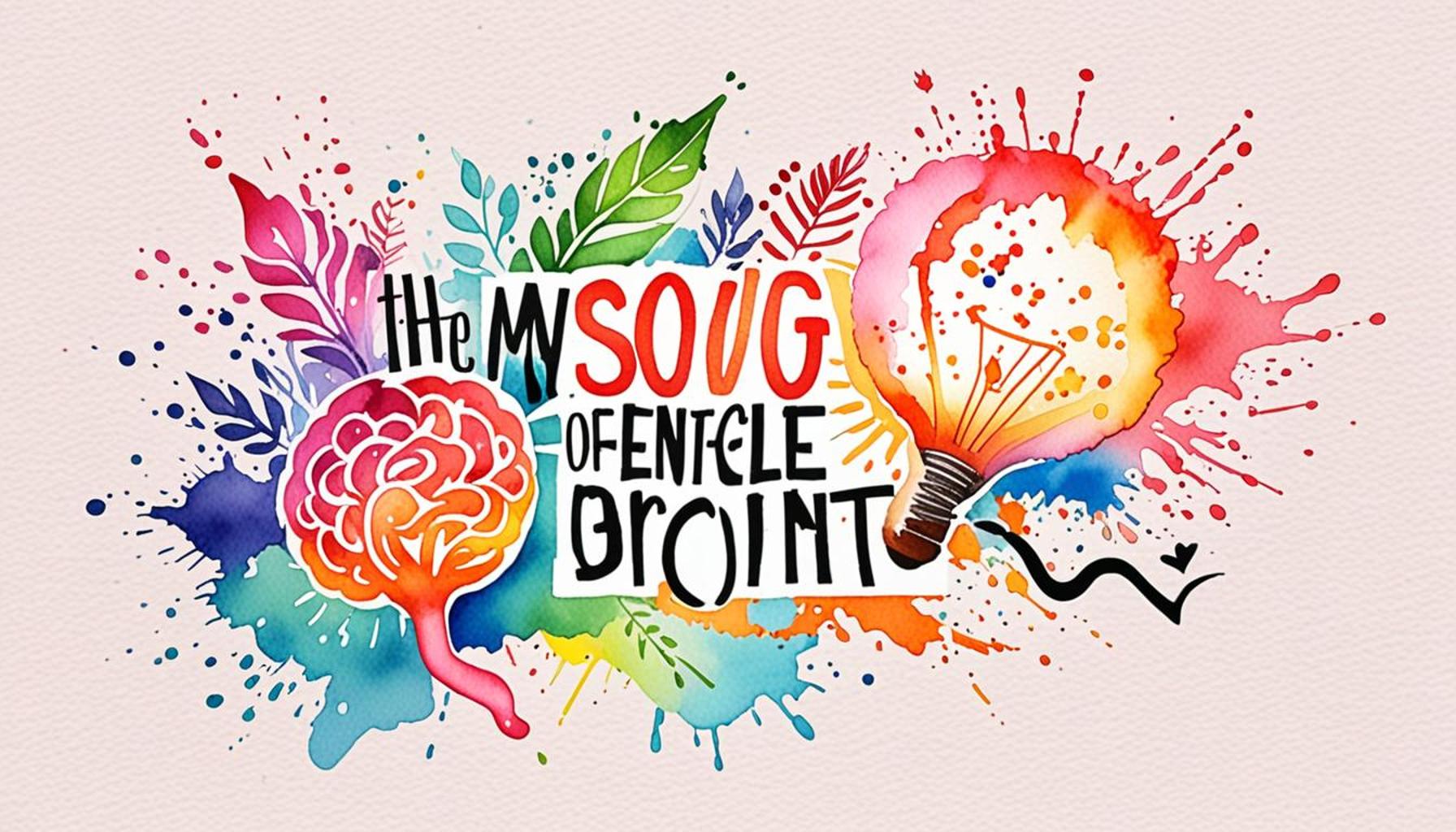Value-Based Goal Strategies: Aligning Aspirations and Life Meaning

Understanding the Importance of Value-Based Goals
In a rapidly evolving world, the pursuit of ambition is often overshadowed by the fundamental need for purpose. Striking a balance between lofty dreams and the principles that govern one’s life is not merely beneficial; it is essential for long-term happiness and fulfillment. By adopting a value-based goal strategy, individuals can create a pathway toward not only realizing their aspirations but also enhancing their overall life satisfaction. This method emphasizes that goals should reflect one’s most fundamental values and beliefs, essentially creating a framework for personal success that is both meaningful and rewarding.
Here’s why integrating a value-based approach into goal setting is crucial:
- Alignment with Principles: When goals resonate with personal values, they transform from mere aspirations into meaningful pursuits that resonate on a deeper level. For instance, a Nigerian entrepreneur who deeply values community might establish a business that creates local jobs, thereby supporting their community while pursuing personal success.
- Increased Motivation: Goals that echo individual beliefs are far easier to commit to. When one’s ambitions feel authentic and tied to personal values, the drive to overcome obstacles becomes stronger. For example, a student who is passionate about education and success may dedicate themselves to their studies not just for grades, but to uplift their family and community.
- Emotional Satisfaction: Achievements tied to personal values foster a profound sense of accomplishment, as they encompass more than just surface-level success. Imagine a healthcare worker in Nigeria who dedicates their time to serving underserved communities — the joy and fulfillment gained from making a difference far exceed the rewards that come with financial gain.
In Nigeria, a country rich in diverse cultures and traditions, the significance of value-based goals takes on added dimensions. Many people aspire for prosperity, yet they often neglect the importance of aligning their goals with their true convictions. For instance, someone may chase financial independence but later discover that nurturing relationships or offering support to others brings greater joy and satisfaction.
Exploring value-based goal strategies not only sets the stage for success but also enriches one’s life with purpose and direction. Join us as we examine practical methods, share inspiring stories, and provide actionable insights that will empower individuals to align their ambitions with their core values. Together, we can uncover the profound impact that establishing value-driven goals can have on both personal lives and communities, ultimately leading to a more fulfilling existence.
SEE ALSO: Click here to read another article

Establishing a Foundation for Value-Based Goals
Setting value-based goals is not simply a matter of identifying what one wishes to achieve; it is about delving into the core of what truly matters in life. This deeper exploration can make all the difference when determining the direction one wishes to take. Creating value-centric objectives serves to ground aspirations in something substantial, steering individuals toward paths that not only promise success but also personal satisfaction.
To effectively implement a value-based goal strategy, it is important to assess and define one’s core values. Here are a few key steps to consider:
- Identify Your Values: Begin by reflecting on what you value most in life. This could be family, education, community, health, or personal growth. Understanding what resonates most profoundly with you will help in formulating goals that align with these values.
- Set Clear Goals: Once your core values are identified, translate them into specific, measurable, attainable, relevant, and time-bound (SMART) goals. For instance, if you value education, you could set a goal to enroll in a degree program within the next year.
- Regularly Review and Adjust: Life is dynamic, and so are personal values. Regularly reviewing your goals ensures they continue to reflect your evolving priorities. If a rural health worker in Nigeria discovers a newfound passion for environmental sustainability, they might refine their goals to include community education about healthcare and environmental conservation.
- Engage Others: Seeking input and feedback from trusted friends, mentors, or community members can provide new insights and help clarify your path. Engaging with others fosters a support system and can lead to collaborative goals that benefit wider society.
In Nigeria, the concept of community is deeply rooted, making it particularly vital to align personal aspirations with broader social principles. The balance between individual ambition and collective well-being underscores much of the national ethos. A local artisan who values cultural heritage may set a goal to promote traditional crafts while sustaining their livelihood. Such an individual not only seeks personal fulfillment but also contributes to preserving Nigeria’s rich traditions and empowering local artisans.
Moreover, the significance of understanding one’s cultural context cannot be overstated. Diverse backgrounds influence values in profound ways. As individuals in Nigeria navigate their personal and professional lives, recognizing how cultural heritage shapes aspirations may yield a more profound alignment between goals and life meaning. A young professional might find that their desire for career advancement is enhanced by consciously contributing to initiatives that uplift local communities, leading to both personal success and social impact.
At the heart of value-based goal strategies is the belief that personal fulfillment stems from pursuit of goals that resonate deeply within. By grounding aspirations in core values, individuals can embark on a journey toward meaningful achievements that resonate beyond personal gain, achieving a sense of purpose that enriches both their lives and the lives of others.
Understanding Value-Based Goal Strategies
Value-based goal strategies are not just a methodology; they represent a profound shift in how individuals align their aspirations with their deeper sense of purpose and life meaning. By focusing on values, this approach encourages a more holistic view of success, which can lead to personal fulfillment and a greater sense of achievement. When individuals engage in value-based goal setting, they examine what truly matters to them—be it health, relationships, career satisfaction, or personal growth. This conscious recognition often leads to more sustainable motivation and can create a cascading positive impact on other areas of life. For example, someone who values community involvement may set goals that enhance their social relationships, leading to a stronger support network that, in turn, fosters emotional well-being.The implications of this strategy also extend into workplace dynamics. Organizations that embrace value-based goals tend to see enhanced employee engagement and productivity. When team members feel that their personal values align with the company’s mission, they are likely to invest more energy into their work, resulting in higher retention rates and less burnout. As we delve deeper into this topic, it’s important to explore how these strategies can be practically applied in daily life, both personally and professionally. By understanding the principles and benefits of value-based goal strategies, individuals can start crafting their own pathways to a more meaningful existence.
| Category | Description |
|---|---|
| Alignment with Personal Values | By focusing on core values, goals become more meaningful and fulfilling. |
| Enhanced Motivation | Individuals are driven by intrinsic reasons leading to greater commitment. |
This exploration provides fascinating insights into how aligning aspirations with life meaning results in enriched lives and workplaces. It beckons us to further investigate the mechanisms that optimize value-driven living and working.
CHECK OUT: Click here to explore more
Nurturing Resilience Through Values
Resilience is an essential quality in the journey toward achieving value-based goals, especially in a diverse and evolving landscape like Nigeria. As individuals align their aspirations with their core values, they cultivate not just purpose but also the ability to adapt and bounce back from challenges. Recognizing the role of resilience in this process underscores the interconnectedness of personal growth and the pursuit of meaningful goals.
One strategy to nurture resilience is through value affirmation. This practice involves regularly reflecting on one’s values and the reasons behind setting specific goals. For instance, a young entrepreneur in Lagos focusing on innovation and technology could benefit from reminding themselves of their underlying values, such as family sustainability or mentorship. This reflection helps maintain motivation during setbacks, reinforcing their commitment to achieving goals that contribute not only to personal success but also to the development of their community.
To effectively amplify resilience through value-based goals, consider the following approaches:
- Focus on Process Over Outcome: Shift your attention from merely achieving end results to valuing the learning experiences gained along the way. An artist striving to gain recognition may concentrate on mastering their craft rather than fixating solely on accolades. This shift fosters resilience, as challenges become opportunities for personal growth.
- Create a Supportive Environment: Surround yourself with individuals who share similar values and goals. In Nigeria, where communal support is often integral, engaging with local networks can provide the encouragement needed to persevere. Organizations, churches, and community groups can facilitate connections that bolster determination.
- Celebrate Small Wins: Acknowledge and appreciate incremental progress toward larger goals. For instance, a teacher committed to improving educational access might celebrate the successful completion of a workshop rather than solely waiting for broader recognition. Each small achievement reinforces the value of perseverance and fosters a resilient mindset.
Valuing resilience not only enhances personal well-being but also positions individuals to contribute effectively to their communities. Take, for example, a health worker in rural Nigeria who prioritizes education about sanitation. As issues arise, such as resource shortages or community scepticism, maintaining a value-oriented focus helps them navigate these obstacles. Their commitment to public health inspires resilience, encouraging innovative solutions and collaborations that ultimately lead to meaningful improvements in community health.
Moreover, embracing cultural values and traditions can fortify resilience. In many Nigerian cultures, storytelling serves as a powerful tool for sharing experiences and wisdom. By engaging with these narratives, individuals can draw strength from their heritage and find motivation within communal histories. This cultural perspective can empower people to frame their challenges as part of a larger narrative filled with possibilities for transformation and progress.
In employing value-based strategies to cultivate resilience, individuals are not solely weaving their aspirations into their fabric of life; they are also fostering a mindset that embraces growth through adversity. Adopting an approach that simultaneously honors personal values and acknowledges life’s inherent challenges may not only lead to successful goal attainment but also encourage the emergence of a more compassionate and supportive society.
SEE ALSO: Click here to read another article
Conclusion: Harmonizing Aspirations with Life’s Purpose
In the ever-evolving landscape of personal development, value-based goal strategies emerge as a beacon for individuals seeking to harmonize their aspirations with a deeper sense of life meaning. By anchoring goals in core values, individuals not only navigate their paths with clarity but also cultivate resilience to face inevitable challenges. This framework is particularly significant in Nigeria, where community, culture, and tradition heavily influence personal aspirations.
Through consistent value affirmation, embracing a focus on the journey rather than just the destination, and fostering supportive networks, individuals can build a robust foundation for resilience. The experiences shared by emerging leaders, educators, and health workers across the nation illustrate how a commitment to one’s values can lead to transformative changes not only on a personal level but also within their communities.
As we consider the intertwined nature of aspirations and life’s meaning, it becomes evident that authenticity and purpose propel us toward our goals. Engaging with local histories, traditions, and communal narratives helps reinforce the idea that challenges are integral to personal growth. By drawing strength from shared values and experiences, we can create a supportive environment ripe for innovation and progress.
Ultimately, adopting a value-based approach is a journey worth embarking on. Whether through artistic pursuits, entrepreneurial ventures, or community service, aligning aspirations with life’s deeper meanings invites individuals not only to thrive personally but also to contribute to a more resilient and compassionate society. As we advance on this path, let us remember that our values shape our stories, our resilience guides our journeys, and ultimately, our aspirations are the stepping stones to not just personal success, but collective progress.


